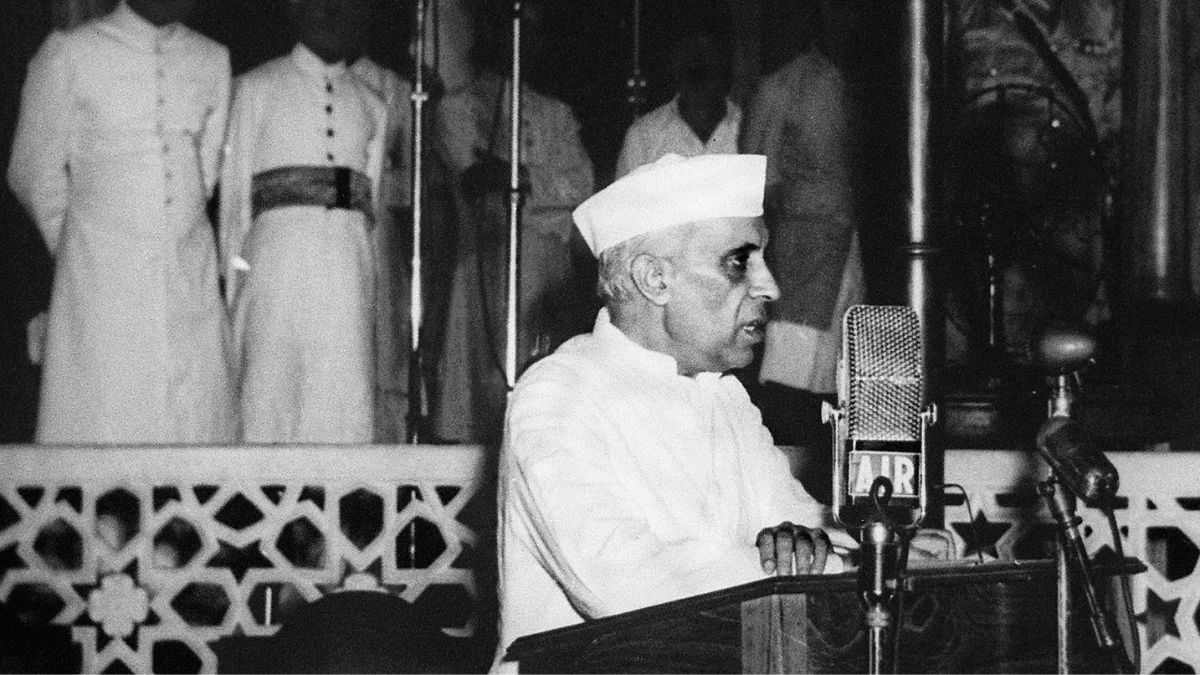Every year on August 15, India celebrates the historic occasion in 1947 when the country gained independence from British rule after nearly 200 years.
This year, India observes its 79th Independence Day. On this day, people across the country remember and pay tribute to the freedom fighters and their sacrifices.
In 1947, on this very day, Prime Minister Jawaharlal Nehru hoisted the national flag from the Red Fort in Delhi and delivered his famous ‘Tryst with Destiny’ speech.
Since then, the sitting Prime Minister has continued the tradition of unfurling the flag at the monument and addressing the nation.
India’s first Independence Day was celebrated on August 15, 1947. But who chose this date?
If you are a history geek who loves to learn about important events from the past, Firstpost Explainers’ ongoing series, History Today , will be your one-stop destination to explore key events.
Let’s clear this up and look at some other historical events that took place on this day:
Why August 15 was chosen as India’s Independence Day
After years of struggle, the British Parliament finally decided to grant India its freedom. It authorised Louis Mountbatten, the last British governor-general of India, to transfer power to the country by June 30, 1948.
However, with communal tensions rising and law and order deteriorating, Mountbatten brought forward the date to August 1947.
He gave two reasons for this decision.
First, he said he wanted to avoid further bloodshed and riots.
Second, he chose August 15 as it marked the second anniversary of Japan’s surrender in the Second World War.
Impact Shorts
More ShortsIn the book ‘Freedom at Midnight’, Mountbatten is quoted as saying, “The date I chose came out of the blue. I chose it in reply to a question. I was determined to show I was the master of the whole event. When they asked if we had set a date, I knew it had to be soon. I hadn’t worked it out exactly then — I thought it had to be about August or September, and I then went out to August 15. Why? Because it was the second anniversary of Japan’s surrender.”
Notably, after intense fighting between the Allied and Axis powers, Japan (an Axis power) surrendered following the atomic bombings of Hiroshima and Nagasaki. On August 15, 1945, Emperor Hirohito told his people that the country would no longer take part in the war.
Based on Mountbatten’s recommendation, the Indian Independence Bill was introduced in the British House of Commons on July 4, 1947. It was passed within two weeks and declared that British rule in India would end on August 15, 1947, with the creation of two dominions: India and Pakistan.
India’s freedom was the result of the efforts of leaders like Mahatma Gandhi, Bhagat Singh, Sardar Vallabhbhai Patel, Jawaharlal Nehru, Subhas Chandra Bose, Chandra Shekhar Azad, and many others.
Today, the occasion is celebrated across the country with cultural events, social service activities and the lighting up of national monuments. People hold cultural programmes and seminars to honour the freedom fighters who gave their lives for the nation’s independence.
Today in 1975: Sholay hit the screens
Also on this day in 1975, one of the most iconic films in Indian cinema, Sholay, was released, coinciding with Independence Day.
Directed by Ramesh Sippy, the film is regarded as one of the greatest Hindi movies ever made.
Its cast included Amitabh Bachchan, Dharmendra, Jaya Bachchan, Hema Malini, Sanjeev Kumar and Amjad Khan.
On release, it shattered all box office records and became the highest-grossing Indian film of 1975.
This Day, That Year
1960: The Republic of the Congo achieved independence from France.
1971: Bahrain declared independence from the United Kingdom.
1998: A car bomb in Omagh, Northern Ireland, killed 29 people and injured more than 200.
2021: The Taliban seized control of Kabul after US forces withdrew from Afghanistan.


)

)
)
)
)
)
)
)
)



